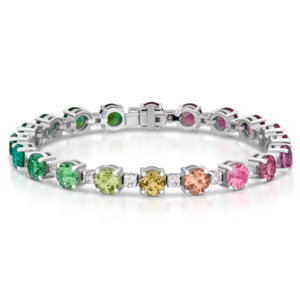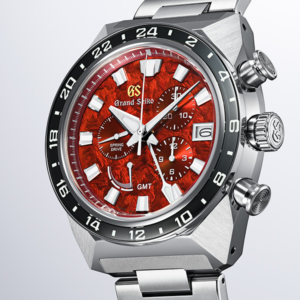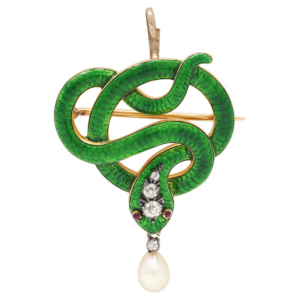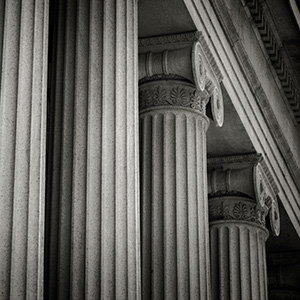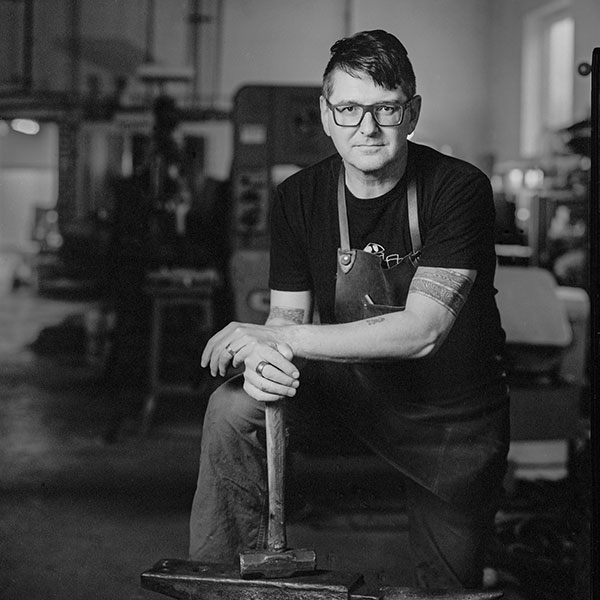
Since 1970, Earth Day (April 22) has served as an annual reminder of our global responsibilities to the environment. This year, with the theme “Invest in Our Planet,” EarthDay.org‘s organizers are asking businesses to consider how strong environmental, social, and governance standards can lead to profitability and happier employees.
The jewelry industry worldwide has engaged in practices aimed at reducing waste— recycling precious materials such as gold and diamonds, for example—and avoid further damage to the environment.
For Earth Day 2023, three jewelry designers talked to JCK about the eco-friendly practices they’ve embraced as business owners, and why they made these choices.
Chris Ploof Designs
“My challenge to people is to make a 3% difference, then 5%, then 10%,” says Chris Ploof, a blacksmith and fine jeweler. “It’s easier to do than you think when you start looking at things differently.”
Ploof’s main environmental accomplishment to date is that his central Massachusetts studio is solar-powered: A massive array of panels on the studio’s roof creates sun-generated electricity for lights, tools, and the equipment Ploof uses to create his fine jewelry.
“It’s the right thing to do,” Ploof says. “Right now, the environment is taking a beating. Whether or not you want to believe science or a talking head that says it’s not an issue, I chose science—and it was an easy decision to make.”
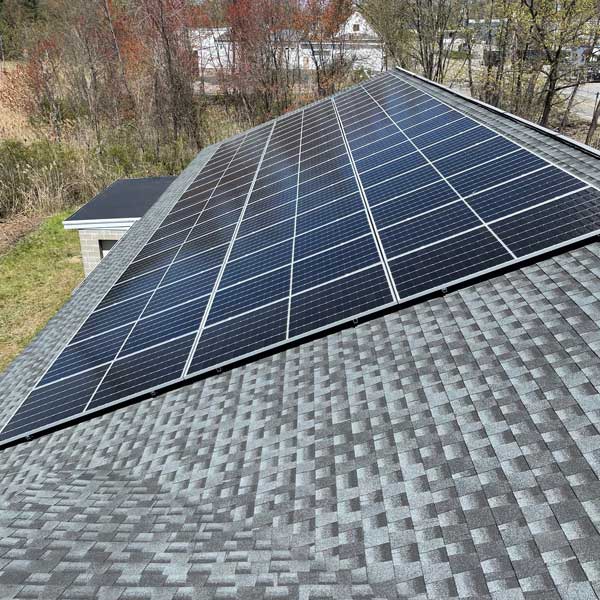
The former Army soldier and bicycle mechanic started making jewelry on the side in the late 1990s and established his own business in 2004. Ploof says he finds joy in maintaining eco-friendly practices, even small efforts like using paper packaging tape so it can be recycled.
“We’ve always ethically sourced our materials and gemstones,” he says. “We use some fair trade mined gold. We’re one of the very early folks that jumped on the Harmony precious metal program. We use an electric car for our business. We have all LED lights in our studio. I’m a Poshmark shopper. They’re little things, but they’re collectively all important.”
Casey Perez Jewelry
Casey Perez ensures that her New York–based fine jewelry business is environmentally conscious through everyday decisions. The majority of people she works with—from suppliers to stone dealers to casters—are located in the city, which keeps her carbon footprint minimal.
“Not only can I see that workers are being treated fairly and receiving fair wages, but I can talk to them face-to-face,” Perez says. “I’m very hands-on, and that’s always been an important part of my process. It is important for me to have a relationship with them. I can see their workshops. Nothing is being hidden.”
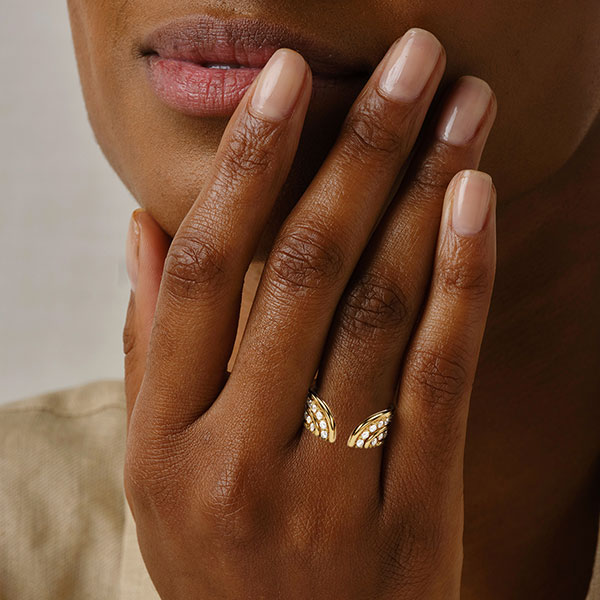
Her pieces are made to order using zero- or low-waste processes, both to protect the environment and to avoid overproduction, Perez says. Her business ethos is to challenge consumerism and overconsumption through a slow-fashion approach, she says.
Perez uses recycled precious metals in her jewelry as well. She also collects the scrap gold and sterling silver from her own studio and repurposes it. She recently posted an Instagram video showing how she rolls out the silver she’s reclaimed and fabricates a pair of earrings from it.
“It’s about Earth Day, but it’s also about every day throughout the year,” Perez says. “I make it a point to give back to causes that are important to me, including the National Forest Foundation. I’m a lover of the outdoors, so it felt like the perfect fit.”
Sydney Evan
A new option on the Sydney Evan website allows customers to forgo boxes in favor of “pouch-only packaging,” which uses less material and thus reduces package waste. The pouch carries the Sydney Evan name on it and can be gift-wrapped, just like a box.
“I love giving our customers the option to pick how they wish to receive their jewelry when they place an order with Sydney Evan. Self-purchasing in the jewelry category is stronger than ever; thus, boxes and extra packaging typically associated with gifting aren’t always necessary,” says company founder and designer Rosanne Karmes. “Allowing our clients to opt out of gift boxes is a small way to reduce our environmental footprint and help cut back on waste.”
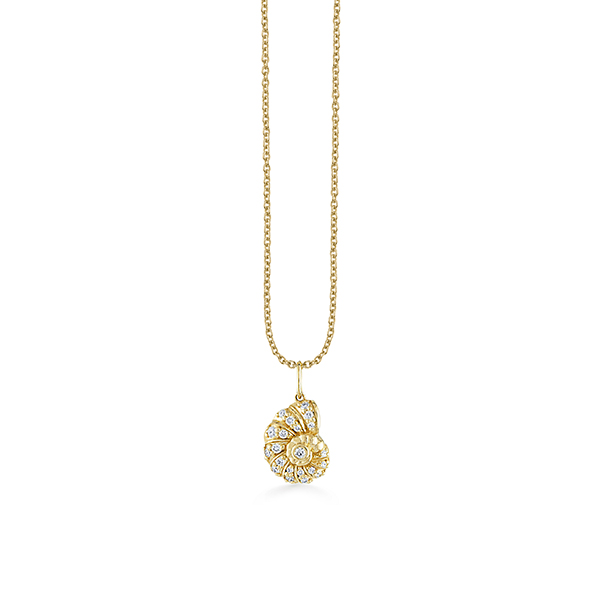
Karmes founded the Los Angeles–based fine jewelry company in 2001, naming it after her children, Sydney and Evan, as well as her father, Sy. Its environmental impact is always at the forefront, Karmes says, because she desires to leave a better planet for her family.
She loves to travel the world, so the health of the planet is always on her mind. The company has a longstanding relationship with Wildlife SOS, a conservation nonprofit in India. Karmes says it is important that she finds ways for her business to reflect her and her customers’ values, including strong roots in family and spirituality.
Top: Chris Ploof is one member of the jewelry industry making efforts to reduce waste and use alternative energy sources, on Earth Day and year-round. (Photo courtesy of Chris Ploof)
Follow me on Instagram and Twitter
Follow JCK on Instagram: @jckmagazineFollow JCK on Twitter: @jckmagazine
Follow JCK on Facebook: @jckmagazine

